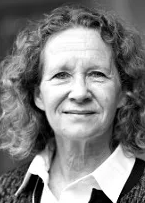One method for assessing psychological wellbeing is the Ryff Scale, developed by Prof. Dr. Carol Ryff in the 1970s. It predates Daniel Pink’s 2009 theory on the three components of Intrinsic Motivation, which are Autonomy, Mastery and Purpose.

Participants take a multi-question assessment, and their answers on a sliding scale from 1-6 reveal how they are faring for each of the six elements. From this, they can develop a plan to work on areas which score low, and start to improve their wellbeing.
What strikes me about the scale is how closely it correlates to the impact on team members of an Active Ethos® programme. The six items on the scale are Autonomy, Environmental Mastery, Personal Growth, Positive Relations with Others, Purpose in Life, and Self Acceptance.
To give those context, a phrase assciated with each might be:
Autonomy:“I have confidence in my opinions, even if they are contrary to the general consensus”
Environmental Mastery: “In general, I feel I am in charge of the situation in which I live”
Personal Growth: “I think it is important to have new experiences that challenge how you think about yourself and the world”
Positive Relations with Others: “People would describe me as a giving person, willing to share my time with others”
Purpose in Life: “Some people wander aimlessly through life, but I am not one of them”
Self Acceptance: “I like most aspects of my personality”.
These six items combine to create a person who is at ease with their choices, brings value to those around them, and enjoys variety and challenge.
The six items can also be seen in the members of a successful team and in good leaders: something which is ultimately supported by a compelling vision, stretch values and their inculcation to drive culture.

